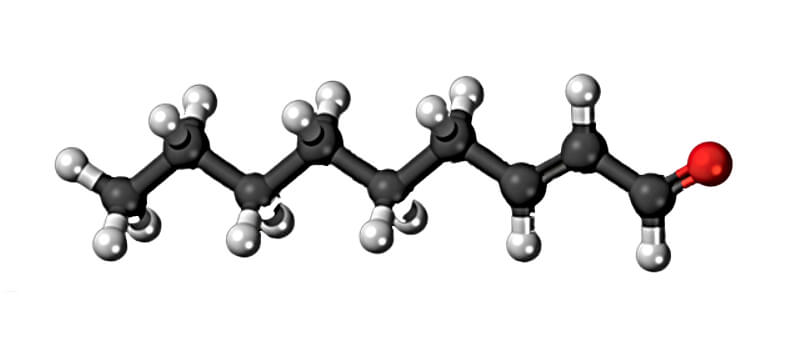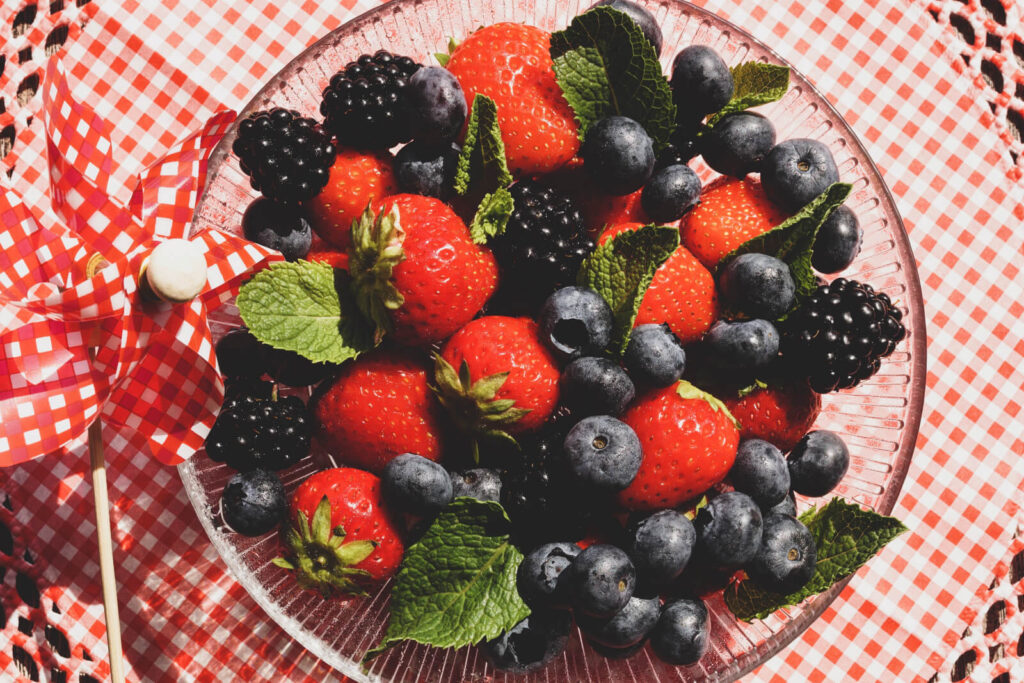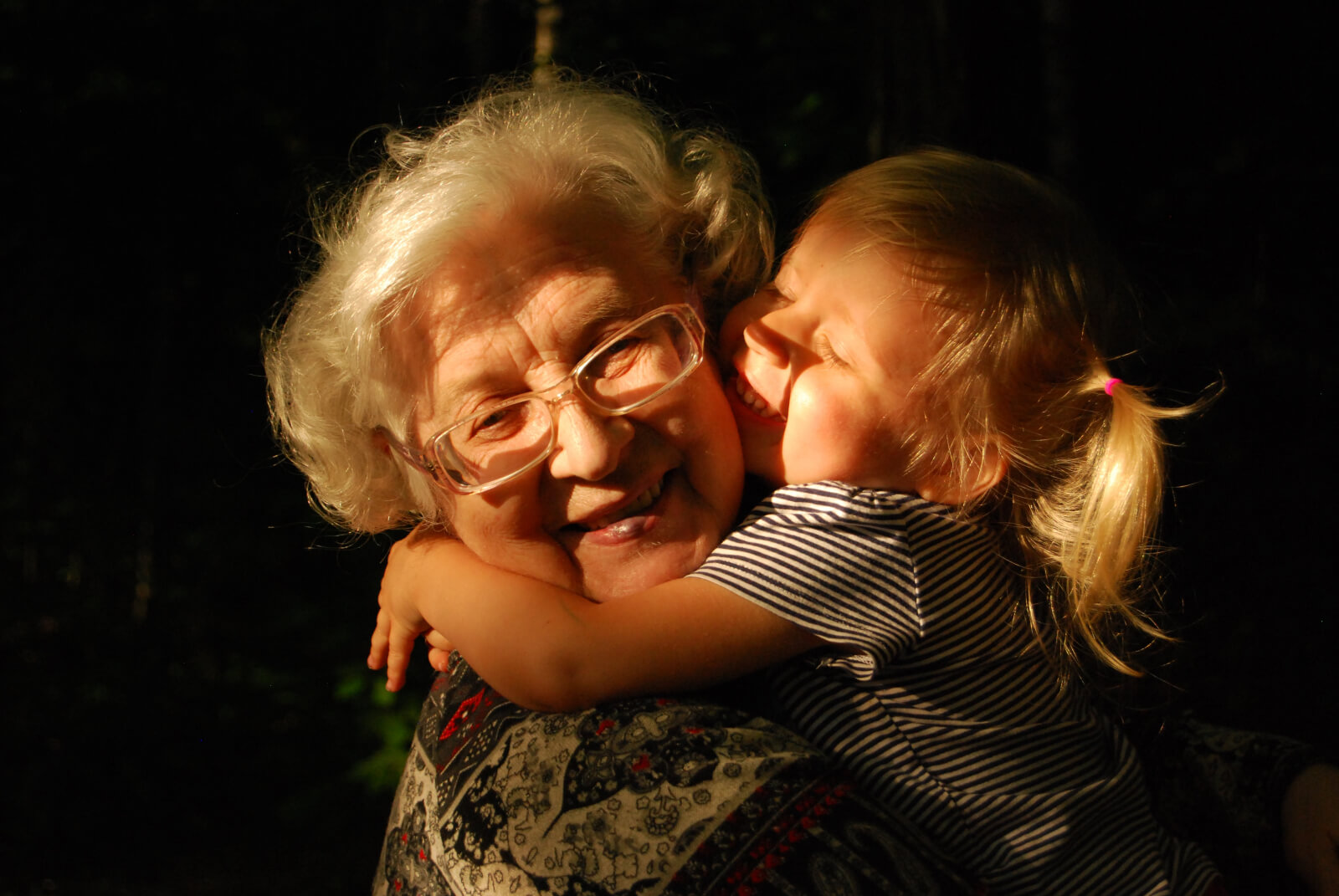Have you ever noticed that some “old people” have a distinctly unpleasant smell? I’m not talking about the overuse of perfumes and fragrances, I’m thinking more of what I can only describe as “old person smell.”
It’s when a grandchild asks “why does grandma and grandpa’s house smell funny?
It’s no joke.
The smell is hard to describe, but is often associated with words like acetone-like, musty, yeasty, pungent.
And you may not even be aware that you have this smell, because up to one quarter of all individuals over the age of 40 suffer from a loss of smell1.
Why do some older humans get this smell while others smell fresh like a baby? What metabolic changes are responsible for it, what are the health implications of “old person smell” and what can we do to prevent it?
Skin changes as we age
As people age, their skin becomes thinner and more prone to dryness, which can contribute to an increased risk of skin infections and an altered odor.
Aging is also accompanied by reduced movement and reduced blood flow to the skin, and reduced sweating. This can lead to changes in the skin biome (bacteria) producing a musty smell, and decreased oil production by the sebaceous glands2. This can result in drier skin, which may have a different scent compared to younger individuals.
It’s obvious that as we age, our skin produces different compounds and chemicals. One of the aging-related changes is higher levels of oxidation of the fatty acids that form our cell structure. This is caused partly by a decrease in the levels of antioxidants in the diet and produced in the skin, leading to oxidation of these fatty acids into volatile aldehyde molecules, like 2-nonenal (a nine-carbon aldehyde).
2-Nonenal has 9 carbon atoms (black), and a double bond to an oxygen atom (red)

People in their 60s and beyond can show a 6-fold increase in 2-nonenal levels compared to when they were in their 20s and 30s3.
And 2-nonenal is not the only volatile molecule found on skin; different areas of the body produce different molecules. Researchers found variable volatile compounds when swabbing the back versus the forearm or the axilla2.
Is Aging itself responsible, or do changes in lifestyle cause this change in odor?
Medications and illnesses also contribute to changes in skin odor.
Many older adults are more likely to take medications for various health conditions, and some of these conditions and their medications have distinct odors, such as in diabetes, kidney disease, and liver disease. Diet and lifestyle may also play a role. Anticholinergic drugs, which are commonly prescribed for conditions like overactive bladder, allergies, and Parkinson’s disease, can cause decreased sweating and lead to an accumulation of bacteria on the skin, potentially resulting in an odor.
Some psychiatric medications, including certain antidepressants and antipsychotics, may affect sweating patterns or alter body chemistry, potentially leading to changes in body odor.
Is “old person smell?” avoidable?
Regular exercise can activate our sebaceous and apocrine glands and help clearing, or cleansing of the sweat glands and restore normal skin bacteria.
Clearing away musty or mildew odors by regular house cleaning and improved ventilation can make a huge difference.
Personal hygiene, and specifically the use of soaps enriched with herbal polyphenols such as Green Tea, Tea Tree oil, Persimmon leaves and Rosemary, can reduce the oxidation of the fatty acids responsible for the musty smell.
House cleaning, ventilation and regular bathing with these soaps can only remove 2-nonenal and other volatile organic odor molecules from the surface of the skin, but to prevent them from forming in the first place, one has to look at diet. Processed foods and refined sugars can contribute to imbalances in the gut and overall health. These imbalances may potentially affect body odor. Opt for whole, unprocessed foods and follow a Mediterranean diet.

Chlorophyll-rich foods
Increased consumption of chlorophyll-rich foods has deodorizing benefits. Green foods rich in chlorophyll, such as parsley, cilantro, spinach, kale, arugula, and wheatgrass, will help neutralize odors.
The polyphenol-rich diet
You can also reduce oxidation of fatty acids and improve the overall health of your skin -and all your internal organs- with Polyphenol rich foods. These foods are known for their antioxidant and anti-inflammatory properties. Here are some examples of polyphenol-rich foods:
- Berries: Blueberries, strawberries, raspberries, blackberries, and cranberries.
- Dark chocolate: Look for varieties that contain at least 70% cocoa to ensure a higher polyphenol content.
- Green tea: Green tea is rich in the polyphenol catechins and can provide a good dose of these beneficial compounds.
- Coffee: That’s right, while the polyphenol content can vary depending on the type of coffee bean and the brewing method, coffee is a rich source of polyphenols.
- Olive oil: Cold Pressed, Extra Virgin Olive oil is not only a healthy source of polyphenols, but the fatty acids in EVO are resistant to the oxidative changes that increase volatile compounds in the skin.Nuts and seeds: Vegetables: Certain vegetables are good sources of polyphenols. Examples include broccoli, kale, spinach, artichokes, onions, and red cabbage.
- Tree nuts, including almonds, walnuts, pistachio and pecans are not only a good source of oxidation resistant fatty acids, they are rich in polyphenols.
- Legumes: Legumes like lentils, chickpeas, and black beans contain polyphenols and are rich in resistant starches that promote healthy gut bacteria
- Herbs and spices, such as cloves, cinnamon, oregano, thyme, and turmeric, are known for their high polyphenol content. Including these flavorful ingredients in your meals can boost your polyphenol intake.
So the big takeaway is this: To avoid having your grandkids think you “smell funny”, exercise more like you did when you were younger, eat a chlorophyll and polyphenol rich diet, and avoid medications whenever there is an effective, natural alternative.
Dr. Noel Peterson, ND, DAAPM, is the Medical Director of Oregon Regenerative Medicine, and has practiced naturopathic medicine in Lake Oswego, OR, since 1978. He specializes in natural and regenerative cellular medicine, including Prolotherapy, PRP (Platelet Rich Plasma), and Autologous Stem Cell therapy. Peterson has taught prolotherapy nationally and internationally. In 2019, the Oregon Association of Naturopathic Physicians (OANP) and National University of Natural Medicine (NUNM) selected Dr. Peterson to be honored with naturopathic medicine’s prestigious Living Legend Award.
Sources
- Susanna Mitro, Amy R. Gordon, Mats J. Olsson, Johan N. Lundström, The Smell of Age: Perception and Discrimination of Body Odors of Different Ages. PLOS ONE, May 30, 2012, https://doi.org/10.1371/journal.pone.0038110
- Gallagher M, Wysocki CJ, Leyden JJ, Spielman AI, Sun X, Preti G. Analyses of volatile organic compounds from human skin. Br J Dermatol. 2008;159(4):780-791. doi:10.1111/j.1365-2133.2008.08748.x
- Shinichiro Haze, Yoko Gozu, Shoji Nakamura, Kiyohito Sawano, Hideaki Ohta, Kazuo Yamazaki, et al; 2-Nonenal Newly Found in Human Body Odor Tends to Increase with Aging. Journal of Investigative Dermatology, Volume 116, ISSUE 4, P520-524, April 2001. DOI: https://doi.org/10.1046/j.0022-202x.2001.01287.x
Photos by Ekaterina Shakharova on Unsplash and Susanne Jutzeler Sujufoto on Pexels.



